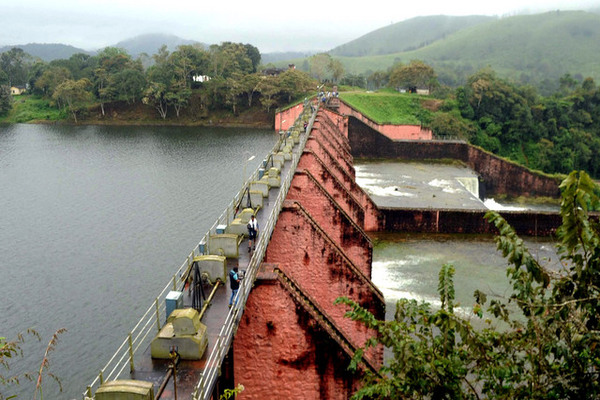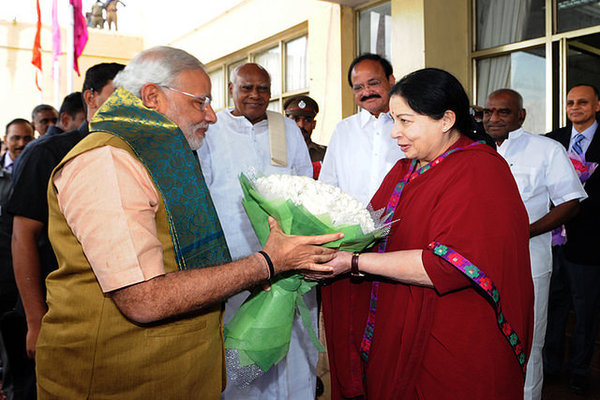08/12/2016
Speak only good of the dead (De mortuis nihil nisi bonum.) This is a mortuary aphorism attributed to Chilon of Sparta (600 B.C.), one of the Seven Sages of Greece. It continues to be universally accepted even today as the mark of socially appropriate behavior. However much hated or feared when a person was alive, only good words would be showered on that person at the time of his/her death. Jayalalithaa Jayaram, one of independent India’s most powerful women, who passed into history earlier this week, too is no exception. The evidence was all too visible in the massive outpouring witnessed from all over the country when she passed away after fighting against death until the last, as she did always. Kerala also mourned the powerful neighbor’s death wholeheartedly, and the state government declared a public holiday too, a rare gesture at the time of death of another state’s chief minister.
Speaking only about the good aspects of the dead and not even mentioning the dark shades at the time of the person’s passing away is quite understandable. But one wonders whether one should even invent good things to ascribe to the dead in order to pay last respects? Jayalalithaa certainly has a unique place in history as one of the very few Indian women who fought and surmounted enormous hurdles in a viciously patriarchal society and emerge eminently victorious. Yet, the observation by Kerala Chief Minister Pinarayi Vijayan in his obit message that she had maintained a special love and affection toward Kerala and its people comes across as a gross exaggeration even in the context of her sad demise.
Unlike her predecessor chief ministers such as her mentor M.G. Ramachandran who was a Malayalee or M. Karunanidhi who had close links with Kerala’s many senior political leaders, Jayalalithaa hardly had any special links with her neighbor. Perhaps the only exception was her faith in certain Malayalee astrologers or her devotion toward Guruvayoor temple or Rajarajeswari temple in Thaliparampu. And when it came to the only major bone of contention between Tamil Nadu and Kerala -- the Mullaperiyar dam dispute -- Jayalalithaa was passionately opposed to her neighbor. She was much more obstinate than anyone else including Karunanidhi in rubbishing whatever Kerala raised in its favor and pooh-poohed the anxiety and fear that Malayalees expressed about the safety of the dam.
It was mainly on account of the persistent efforts by Jayalalithaa – both as opposition leader and chief minister- and also her bête noire Subramanian Swamy, that Kerala continuously suffered setbacks on the Mullaperiyar dispute ever since it leaped into focus since 2001. In February 2010, when the Supreme Court appointed a five-member empowered committee under Justice A.S. Anand to find a final and amicable solution, things had appeared to inch toward a closure. Then Chief Minister Karunanidhi requested the Congress President to ask the centre to negotiate between Kerala and Tamil Nadu. But Jayalalithaa, who was the opposition leader, immediately jumped in to use the occasion to score and also embarrass Karunanidhi. She vociferously objected to the Tamil Nadu government’s request, saying it would open the issue for negotiation and also give advantage to Kerala. This was in line with Tamil emotion which gave Jayalalithaa a political brownie over Karunanidhi. Not to be outdone by Jayalalithaa, Karunanidhi soon informed the Supreme Court that it wouldn’t adjudicate the dispute with Kerala before its empowered committee. That the Supreme Court rejected this stand is another matter.
In 2011 Jayalalithaa came to power and she was apprehensive that the Congress, which was in power both at the center and in Kerala, would work against Tamil Nadu’s interests. There was also an indication that the central Ministry of Science and Technology would entertain Kerala government’s apprehension that the dam was unsafe. So she started sending public letters to Prime Minister Manmohan Singh asking him to desist from any partisan haste. She specifically asked Singh not to allow the Ministry of Science and Technology to enter into an agreement as per Kerala’s wish to jointly monitor the dam’s safety. She also requested the centre to deploy Central Industrial Security Force to guard the dam lest it would be damaged by Kerala. Jayalalithaa raised the emotional pitch further by announcing to build a memorial at Mullaperiyar for Col. Pennycuick, the British engineer who built the dam at the lower camp 116 years ago. The engineer had built the dam at the cost of 10 million rupees, which he raised from even selling his own property in England when there was delay for the arrival of funds! She said she would invite the engineer’s grandson to attend the inauguration of the proposed memorial.
In 2014 Loksabha elections, Jayalalithaa used Mullaperiyar as a major campaign issue and called the Tamil people to vote against the party which was at the centre (Congress) for having allegedly worked against Tamil’s interests. She swept the polls winning 37 of the 39 seats. The `Amma Wave’ successfully checked the Modi wave that swept across the country as it had to contend with just two. Just a week before the poll, Tamil Nadu had a major victory when the Supreme Court ordered the dam’s water level to be raised to 142 feet from 136 feet, categorically rejecting Kerala’s stand that the dam was unsafe. The apex court also struck down Kerala’s newly enacted act which had sought the dam to be declared unsafe and build a new dam. An elated Jayalalithaa soon followed it up by urging Prime Minister Narendra Modi not to even consider Kerala government’s proposal to conduct an environment impact study for a new dam.
An accomplished actor, Jayalalithaa was never short of tact or diplomacy when they were required. In 2011, when Kerala’s loud anguish over the safety of the dam had led to violence and even appeared to have received some resonance nationally, Jayalalithaa issued a letter -couched in words of both affection and warning- to Malayalees. “Kerala is our closest neighbor. In fact until 1950s the two states were one. Malayalees and Tamils share a common linguistic and cultural heritage. There are a large number of Tamils in Kerala. There are an even larger number of Malayalees in Tamil Nadu. We have lived together all these decades in an admirable display of brotherhood and cooperation. The government of Tamil Nadu and people of the state would be the last people on earth who would want devastation to visit their brothers and sisters in Kerala. We would not claim that the dam is safe unless we were absolutely sure of our facts…”
One could well argue that on this issue the Tamil leader was only passionately biased for her own state than having nursed any special hostility toward Kerala. Jayalalithaa’s even more vigorous stand toward Karnataka over the Cauveri issue would even vindicate this argument. But the point is that there is not any instance in her life to prove that Jayalalithaa had maintained any special regard for Kerala. And it’s not to find any particular fault with her. For, the sentiment has been rather mutual too.


